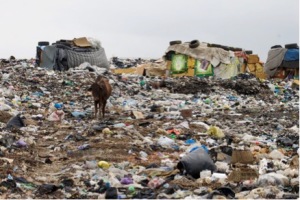Views and photos from Rachel Leah
 The black plastic bags, water sachets and ice cream packaging that line the roads of Accra, Ghana’s capital, make them seem like waste-filled runways. More…
The black plastic bags, water sachets and ice cream packaging that line the roads of Accra, Ghana’s capital, make them seem like waste-filled runways. More…
Views and photos from Rachel Leah
 The black plastic bags, water sachets and ice cream packaging that line the roads of Accra, Ghana’s capital, make them seem like waste-filled runways. More…
The black plastic bags, water sachets and ice cream packaging that line the roads of Accra, Ghana’s capital, make them seem like waste-filled runways. More…
By Heather Craig
After spending 11 days in Rwanda, studying justice and reconciliation post genocide, I’ve returned with a copious amount of information. Visiting memorials and listening to the accounts of survivors and perpetrators of the 1994 genocide proved to be an emotional and enlightening experience. More…
Samantha Adler analyzes what makes unusual forms of diplomacy effective or ineffective at reducing conflict. This is the final article in a series of five.
In the midst of Burundi’s civil war, two Zulu leaders who had once tried to kill one another shared their experience of making peace. Samantha Adler examines their work and other efforts in the third of five articles on innovative diplomacy.
To learn about South Africa’s transformation since the end of apartheid in 1994, a group of graduate students from New York University’s Center for Global Affairs visited Johannesburg and Cape Town in June. Lori Perkovich reports.

Ekurhuleni Pride Organising Committee members, including Ntsupe Mohapi, right;, and Matseko Mahlaba, foreground. Photo by Hayley Chesnik.
South Africa has extremely high rates of rape and other forms of gender-based violence. Hayley Chesnik reports on her travel to Johannesburg and Cape Town to learn about efforts to address the issue.
More…
Jane McClenahan writes: It’s a cliche that Global Affairs can often seem extremely depressing. As with most cliches there’s truth in it. Those of us studying it struggle at times to find the positive.
Lori Perkovich reports on a United Nations panel discussion of the conflict-related sexual violence that plagues the Democratic Republic of Congo.
201 4 is the twentieth anniversary of the Rwandan genocide. Over 800,000 Tutsis and moderate Hutus were killed in three months. American development and humanitarian worker, Carl Wilkens was there. Leslie Dewees reports.
4 is the twentieth anniversary of the Rwandan genocide. Over 800,000 Tutsis and moderate Hutus were killed in three months. American development and humanitarian worker, Carl Wilkens was there. Leslie Dewees reports.